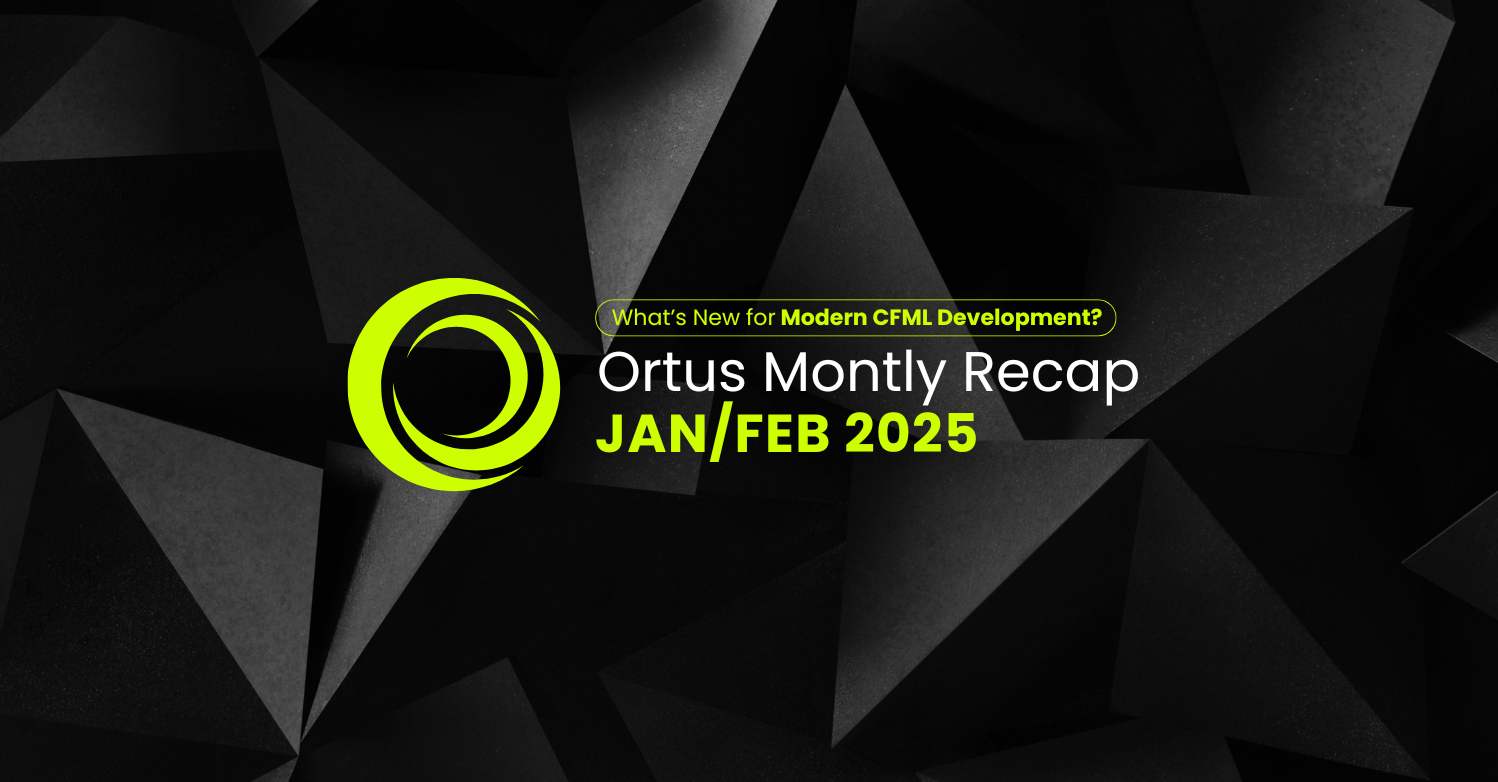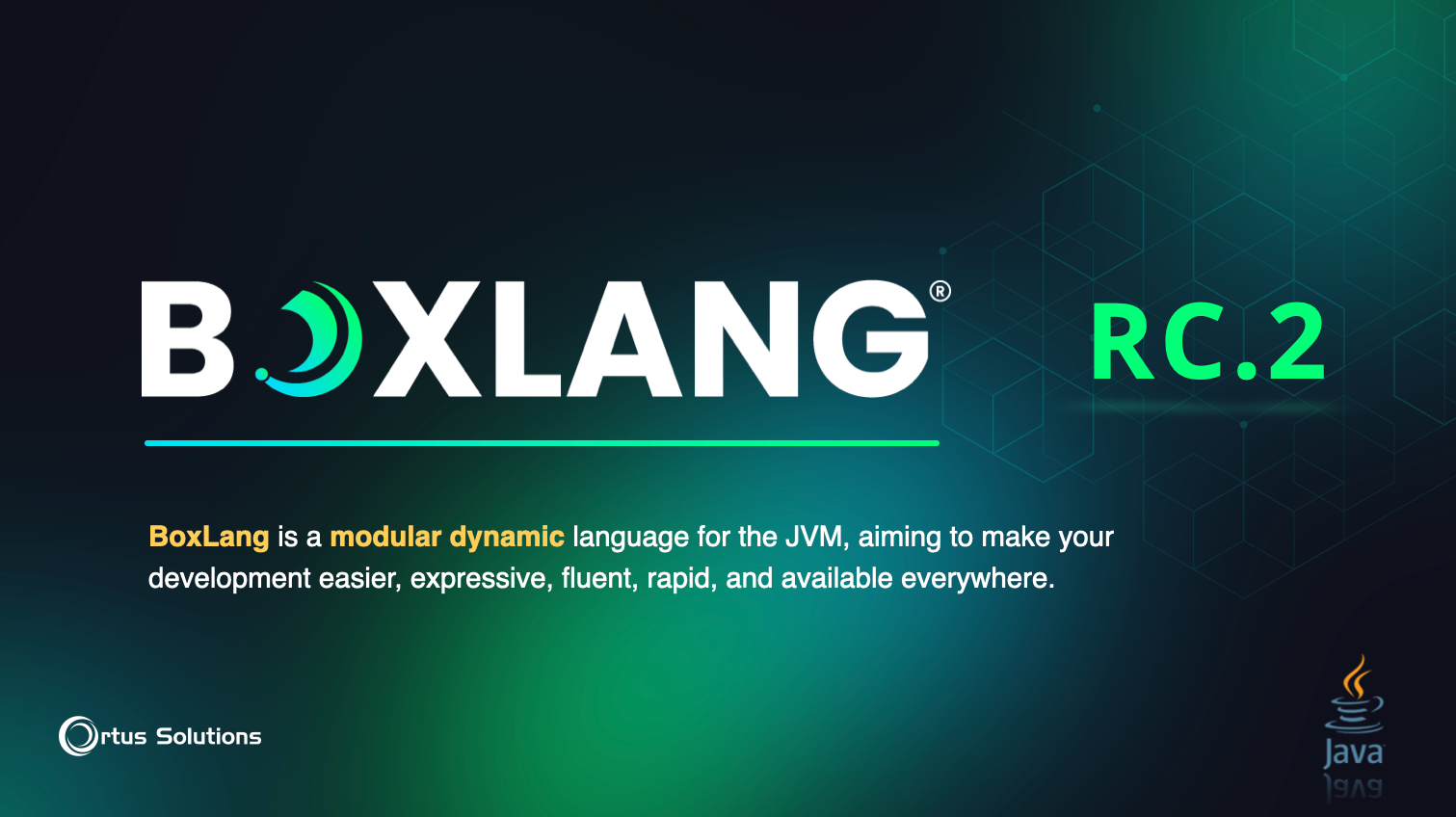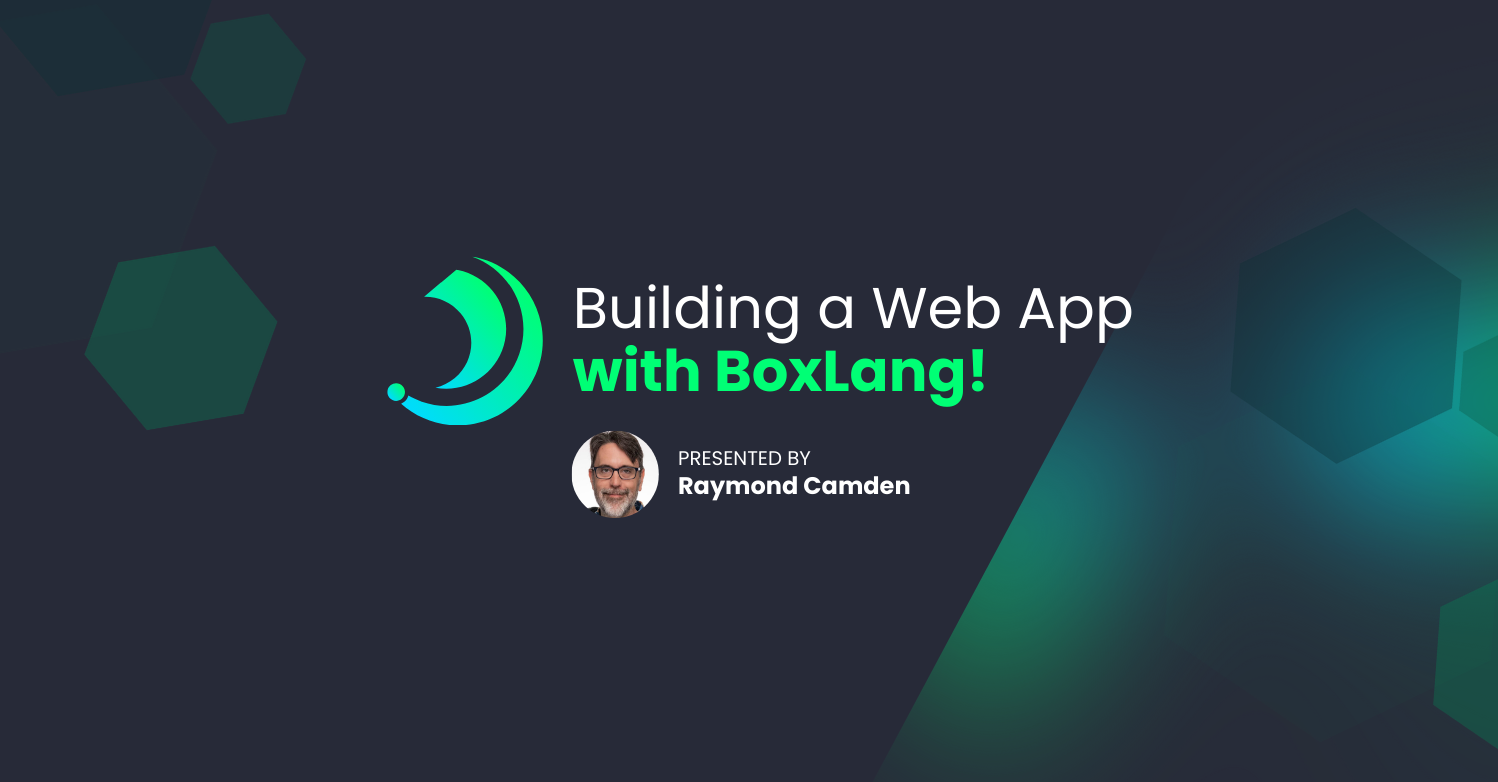Blog
Recent Entries

Ortus Monthly Recap - Jan/Feb
Ortus Solutions is kicking off 2025 with major milestones, from the highly anticipated Into the Box 2025 to groundbreaking advancements in BoxLang and key industry event appearances at Jfokus and DevNexus 2025. With new product releases, enhanced compatibility, and exclusive discounts, we’re equipping developers with the tools they need to build faster, smarter, and more efficiently.Let’s dive into the latest updates shaping the future of modern web development!

BoxLang 1.0.0 RC2 Launched
We’re entering the final stretch of our pre-releases, and we couldn’t be more excited to introduce RC2! 🚀 This release marks a major leap in performance and compatibility, the result of over six months of intensive development. Beyond enhanced stability and seamless integration, RC2 delivers game-changing performance optimizations that push the boundaries of efficiency. Get ready for our fastest, most refined release yet!

Building a Web App with BoxLang!
BoxLang, the new JVM-based scripting language from Ortus Solutions, is gaining traction among developers looking for a modern, lightweight alternative for building web applications. In a Recent blog post, Raymond Camden took it for a spin by developing a simple blog application, highlighting BoxLang's capabilities and ease of use. Let’s break down his experience and key takeaways.

Add Your Comment
(6)
Mar 19, 2013 02:18:17 UTC
by Chris Galli
event.getValue('foo','default'); is not returning as I am understanding it should. I am using prc.isWidget = event.getValue('arguments.isWidget','false'); or prc.isWidget = event.getValue('arguments.isWidget',false); But both return false when my arguments.isWidget value is true by using if (arguments.isWidget){prc.isWidget = true;}else{prc.isWidget = false;}; I get the desired behavior. Am I using this incorrectly?
Mar 19, 2013 02:46:43 UTC
by Brad Wood
You're misunderstanding the event.getValue() method. It is not a general purpose method for accessing any variables in the function but instead a special method specifically for getting values from the request collection. If you do event.getValue('arguments.foo') that is looking for a key called "arguments.foo" in the request collection struct, or rc["arguments.foo"] which is obviously not what you want. If you want to deal with values coming into the arguments scope, you want to use the regular functionality of CFML to deal with that such as CFParam, structKeyExists() and the like. Only use the methods in the event object to work with the request collection.
Mar 19, 2013 11:57:01 UTC
by Chris Galli
Thanks. That makes sense now. Something more like param arguments.isWidget = event.getValue('rc.isWidget','false'); pr.isWidegt = arguments.isWidget; should give the arguments scope priority while gracefully delegating to the rc and then to a default value.
Mar 19, 2013 17:27:41 UTC
by Chris Galli
I discovered I do not need to reference the rc in the event.get value. <br><br> param arguments.isWidget = event.getValue('isWidget','false'); <br><br> prc.isWidget = arguments.isWidget;
Mar 19, 2013 18:00:52 UTC
by Brad Wood
Yep, I was going to comment to that effect but you beat me to it. You only have to pass in the exact name of the variable in the rc to the getValue method. Otherwise it would be looking for rc["rc.foo"] which wouldn't exist. Think of it this way: return event.getValue("foobar"); is the exact same as: var rc = event.getCollection(); return rc.foobar;
Mar 19, 2013 18:01:44 UTC
by Brad Wood
Wow, that's annoying that all our line breaks keep getting eaten-- I'm going to put in a ticket for that :)